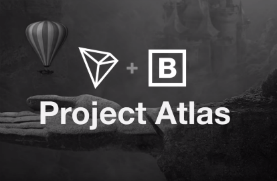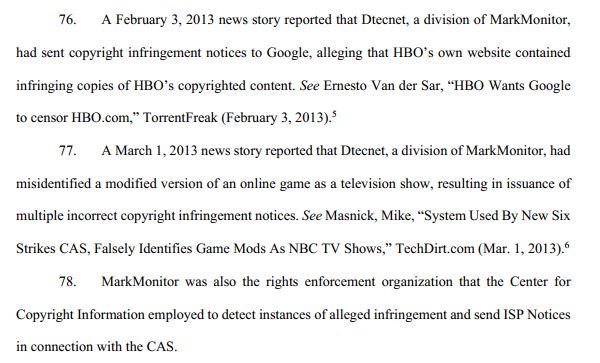BitTorrent and Tron Hope Other Clients Will Embrace ‘Paid’ Seeding
vendredi 28 septembre 2018 à 17:23 It’s been only a few weeks since BitTorrent was officially aquired by Tron, a relatively new cryptocurrency.
It’s been only a few weeks since BitTorrent was officially aquired by Tron, a relatively new cryptocurrency.
Both companies were built around decentralization, which makes for a good match. However, it doesn’t stop there.
BitTorrent and Tron plan to integrate blockchain technology into future releases of their torrent clients. In short, they want to make it possible for users to ‘earn’ tokens by seeding. At the same time, others can ‘bid’ tokens to speed up their downloads.
The new plan is dubbed “Project Atlas” and BitTorrent currently has seven people working on it full-time. In theory, the incentives will increase total seeding capacity, improving the health of the torrent ecosystem.
“By adding tokens we’ll make it so that you can effectively earn per seeding and create incentives for users not only to seed longer but to dedicate more of their bandwidth and storage overall,” Project Atlas lead Justin Knoll says.
The idea to merge the blockchain with file-sharing technology isn’t new. Joystream, previously implemented a similar idea and Upfiring is also working on incentivized sharing. BitTorrent itself also considered it before Tron came into the picture.
“Even before the Tron acquisition, our R&D team was looking at ways to add blockchain based incentives to the protocol. Now with the addition of Tron’s expertise, we can accelerate that effort,” Knoll says.
It remains unclear when the project will be ready for the public, but this week the team announced some further details. In particular, BitTorrent and Tron stress that there won’t be any need for BitTorrent users to change their current habits.
The BitTorrent protocol will always remain open and Project Atlas will be implemented as a series of optional protocol extensions. These will be available for anyone to use, much like uTorrent’s previous uTP extension.
This means that users of third-party BitTorrent clients can still download from and seed to blockchain enhanced clients, and vice versa.
“If you want to keep using your current client, it will still work with project Atlas clients. If you don’t want to bid or earn tokens per seeding, you don’t need to,” Knoll clarifies.
While backward compatibility is a major upside, it seems likely that new clients will prioritize each other, at least in some instances. After all, that’s a requirement to speed up torrents.
BitTorrent says it will start implementing the technology in its desktop clients, such as uTorrent. The next step is mobile. In addition, the company encourages developers of other BitTorrent clients to follow suit.
“We’ll release the details of our implementation and encourage third-party clients and the whole ecosystem to implement this,” Knoll says.
The developer of the third-party torrent client Frostwire previously showed his interest in the idea late August. He asked BitTorrent and Tron whether the technology would be public but never received an answer.

Speaking with TorrentFreak, developer Angel Leon confirmed his interest.
“It’s something we were interested in and that we think is necessary to fulfill a vision of a decentralized Apple Store/Google Play/Amazon Music|Video competitor with BitTorrent as the transport mechanism,” Leon told us.
However, the developments come too late for Frostwire, as the torrent client just shut down. Whether other client developers are also interested, remains a question for now.
In any case, BitTorrent and Tron stress that any changes will be backwards compatible. The protocol and its extensions remain open, the clients will remain free of charge, and there is absolutely no mining involved.
More information about Project Atlas’ plans is expected to be unveiled in a few hours, during a live presentation.
Source: TF, for the latest info on copyright, file-sharing, torrent sites and more. We also have VPN reviews, discounts, offers and coupons.

 Last month, Cox ended its piracy liability lawsuit with music company BMG, agreeing to a “
Last month, Cox ended its piracy liability lawsuit with music company BMG, agreeing to a “


